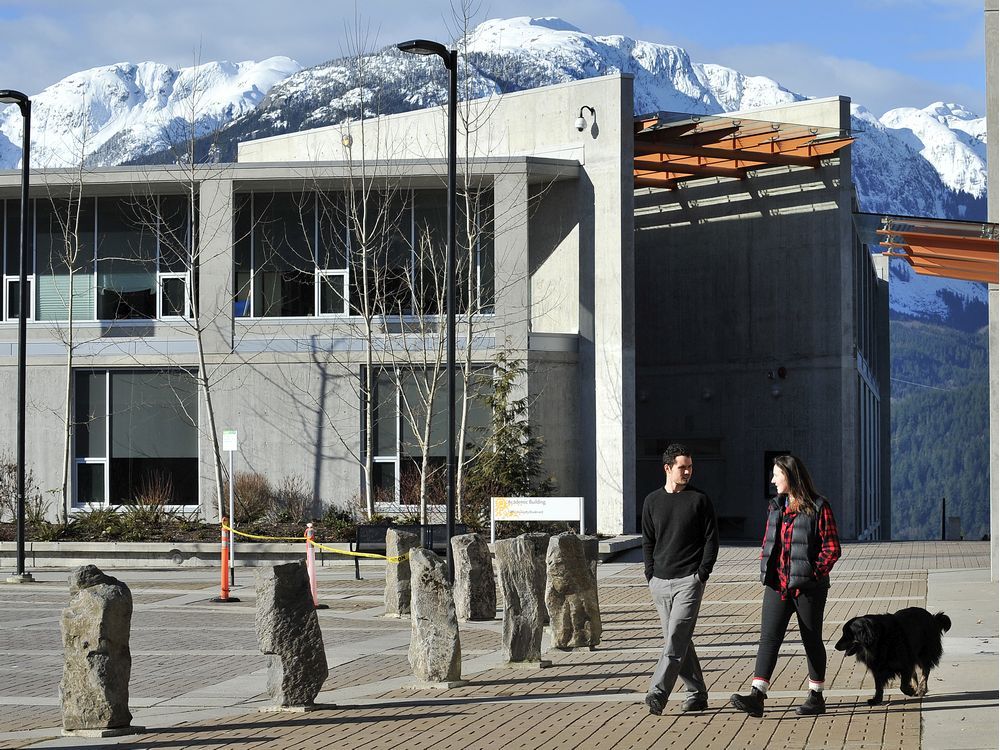Quest University granted creditor protection in court

Credit to Author: Keith Fraser| Date: Sat, 18 Jan 2020 00:22:13 +0000
Quest University, an independent university in Squamish with more than 500 students that was established through the vision of former UBC president David Strangway, is in financial difficulty and has gone into creditor protection.
An order granted by the B.C. Supreme Court on Thursday gives the university an estimated four to six months to get out from underneath a $23-million loan that recently came due.
The university says the lender, the Vanchorverve Foundation, threatened receivership and demanded that several of Quest’s board members give up their seats, which the university says would have resulted in giving the lender control of the board.
Rather than agree to the demands and being unable to pay down the loan, the university went to court and received approval for relief under the federal Companies’ Creditors Arrangement Act.
Jasmine Aimaq, the university’s director of marketing and communications, said Friday that the move provides financing so that things will be fine for this academic year.
She said the university has had assemblies with students and faculty and is being “completely transparent” about what has happened.
“Our aim is business as usual, classes running as usual, payroll as usual,” she said. “And we are looking for long-term solutions to make sure that we are stable past this academic year. That’s what we’re telling them.”
The university is continuing to recruit for the fall, but with a very clear message, she added.
“We are not going to encourage or discourage students from enrolling. We are going to continue to show what we offer and we strongly believe that this is the best undergraduate liberal arts education that you can get.”
No students have withdrawn from the university as a result of the recent financial troubles, said Aimaq.
The university, which opened in 2007 and offers an “interdisciplinary” undergraduate degree in arts and sciences, is a not-for-profit institution and receives no government funding.
Tuition payments, which amount to $35,000 a year per student, provide for 78 per cent of the revenues, with the university continuing to rely on charitable donations and loans to meet its operating expenses.
Aimaq said that the loan in question was taken during the early years of the university as startup money, which she said was “pretty typical” for young institutions.
She said the university is exploring several possible financial solutions for the long-term, including a land sale and sharing space with another institution.
Court documents filed by the university in support of the application for creditor protection say that Quest has experienced operating deficits and negative cash flows for several years.
The documents noted that the university had the funds to meet its payroll of approximately $295,000 due on Feb. 10, but would not have the funds for subsequent payrolls without further financing.
In a news release, Quest University President George Iwama said that the court-ordered protection is the “right thing” for the university and gives it room to find a stable path.
“We know the situation may cause concern for our 500 students and their families, so it’s important to note that it’s business as usual for the academic year. We are committed to delivering our academic program while we find a long-term solution, which we’re confident we can do.”
Squamish Mayor Karen Elliott said in a statement that Quest is a “highly” valued part of the community and of the broader post-secondary community.
“Quest was founded by Dr. David Strangway in 2007 to ‘revolutionize undergraduate education’ and we hope Dr. Strangway’s vision can come to fruition.
“We are confident in Quest’s dedication and pioneering spirit and their ability to innovate solutions that will allow them to continue delivering undergraduate programming in the years to come.”